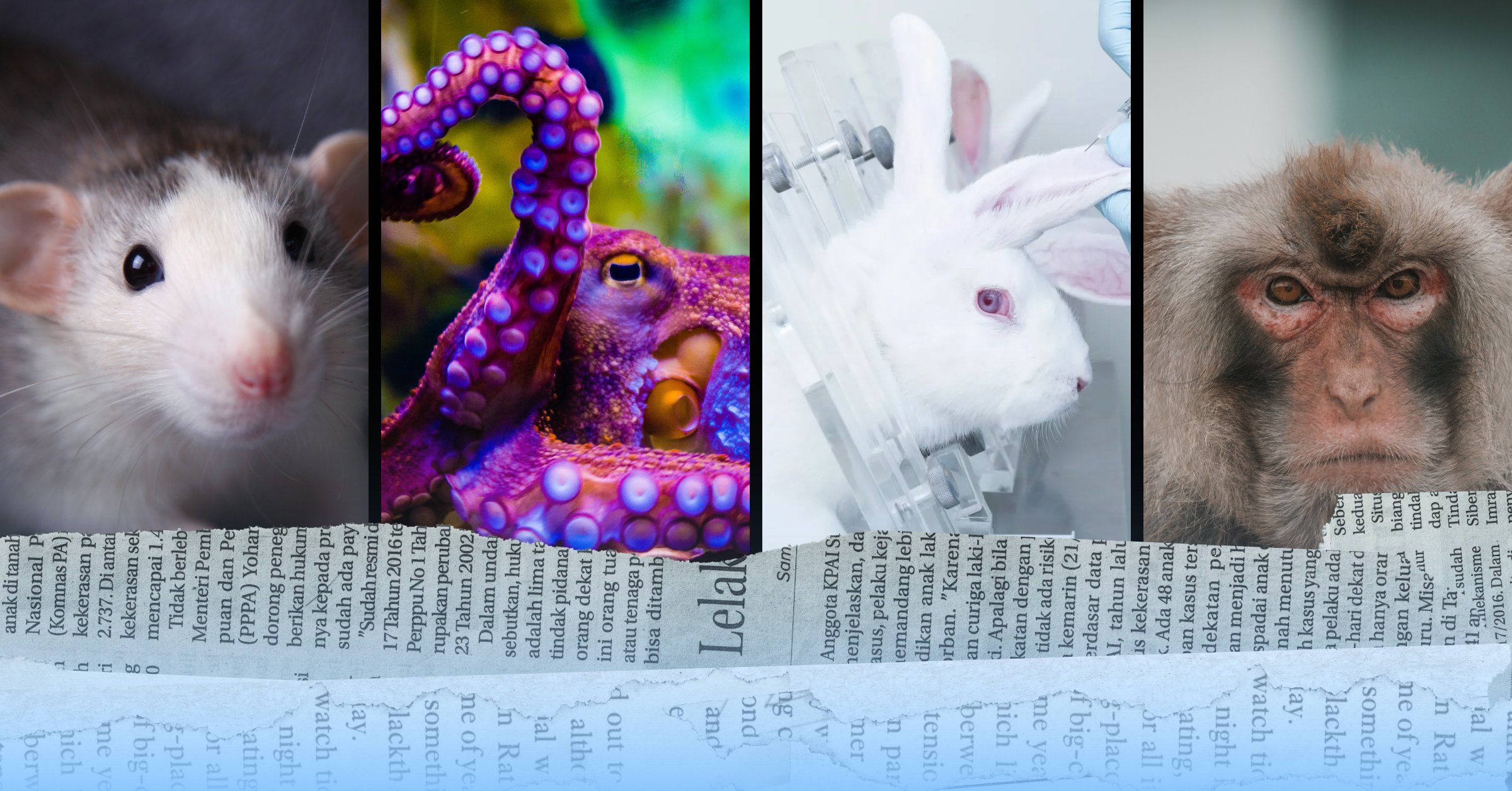
Here’s a roundup of this week’s biggest news stories related to animal research—all the recent media coverage you need to know right now to be the most effective activist for animals in labs.
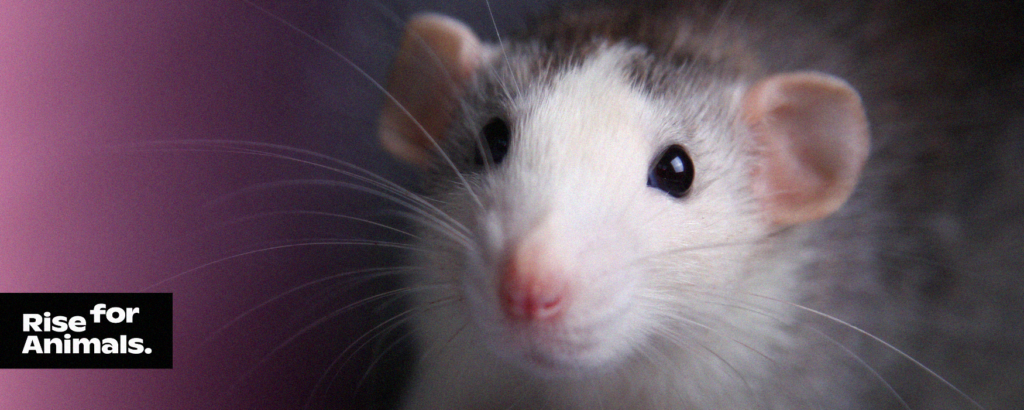
Reverie, Ratties, & Racketeers
Rise for Animals, 11/7/2023
In a thinly-veiled ploy for kudos and ongoing public support, researchers are packaging a long-known fact about rats as a newly-realized and headline-worthy discovery. After almost a decade of invasive experimentation – which culminated in the forcing of water-deprived rats with machinery implanted in their brains to “earn” drops of water by navigating virtual reality scenarios – scientists are feigning surprise that rats are able to imagine and daydream. Full Story →
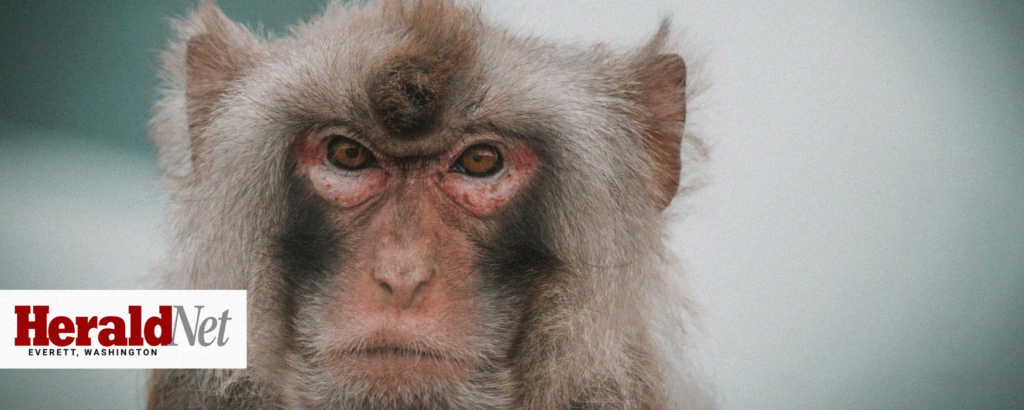
USDA Cites Everett Animal Testing Lab for Injuring Sedated Monkey
Janice Podsada, 11/3//2023
“Altasciences, an animal testing lab in south Everett, was cited by federal regulators for injuring a monkey that hit the floor after being repeatedly tossed into the air.”
“According to a [USDA] report, on May 16 an Altasciences worker was tossing a sedated long-tailed monkey into the air and catching him. In the final toss, the worker failed to catch the small monkey – about the size of a cat – and [he] crashed into the floor. ‘The force of the impact from the unbroken fall caused bruising around his face and chin,’….”
“In 2021, the company received four critical violations after four monkeys . . . had to be euthanized for humane reasons following a chemical overdose.” Full Story →

Judge Says UW-Madison Primate Center Conditions are Shocking, But Rejects Call for Prosecution
Bill Lueders, 11/7/2023
“A Dane County judge has found probable cause to believe the UW-Madison’s primate center committed criminal violations of the state’s cruelty-to-animal laws after reviewing evidentiary submissions she said ‘shock the conscience and are extraordinarily alarming.’”
“But after reaching this determination, circuit court Judge Nia Trammell declined to exercise her authority to file charges against the facility and appoint a special prosecutor to pursue them….” Full Story →
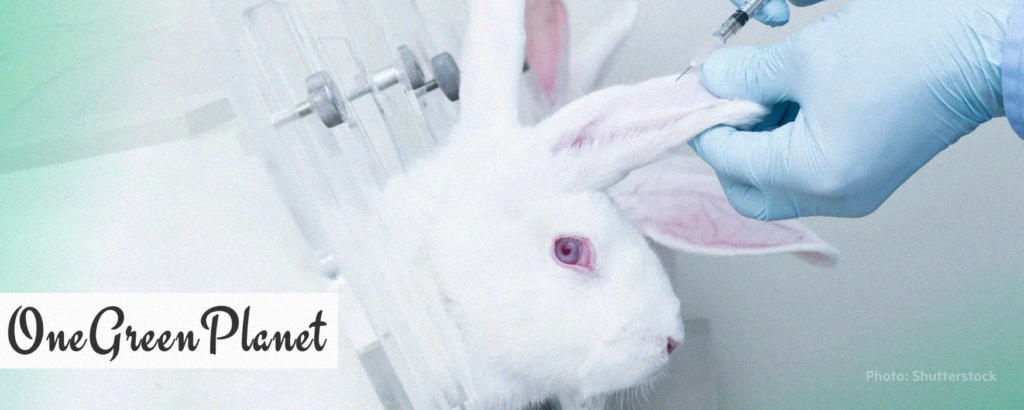
IBM Researchers Want to Test AI Instead of Lab Animals
Trinity Sparke, 11/7/2023
“Traditional toxicity testing on animals, which often involves force-feeding, vomiting, paralysis, convulsions, and internal bleeding, has been a contentious issue for years. These tests are not only ethically troubling but also scientifically inadequate….”
“The latest AI model, developed by a team of researchers in the United States and India, shows promise in both improving the reliability of toxicity testing and eliminating the need for animal subjects . . . Unlike animal tests that rely on how animals react to a substance and then extrapolate the results to humans, this AI model directly analyzes molecular properties and their potential impact on human health.”
“A distinctive feature of this AI model is that it solely utilizes historical data from previous animal experiments, eliminating the need for new animal testing. The model can accurately predict human clinical toxicity without inflicting harm on animals. In contrast, other AI initiatives focused on creating virtual animal models may require ongoing animal test data.” Full Story →

PETA and Their Continuous Issue: Is There a Safe Space Left for Animals?
Angelica Gutierrez, 11/7/2023
“Records obtained by PETA unveiled the shocking practices of several universities during the pandemic . . . Evidence suggests animals considered nonessential to experiments were euthanized en masse by experimenters….”
“‘University labs across the country deemed thousands of animals “unnecessary” to their research, which begs the question why any of these animals were bought, bred, and experimented on in the first place,’….”
“The issue of mass animal euthanization during the pandemic highlights a broader concern: the continued use of animals in laboratory experiments.” Full Story →
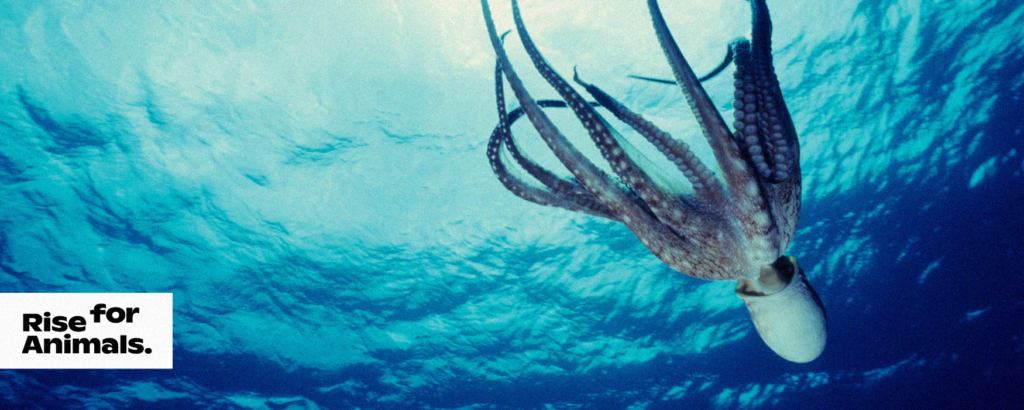
Protecting the Puppies of the Sea
Rise for Animals, 11/9/2023
Cephalopods – or octopuses, squids, cuttlefish, and nautiluses – are sentient, “smart and sensitive” aquatic beings, who researchers themselves have likened to dogs.
In June of 2020, Rise for Animals, with Harvard Law School’s Animal Law and Policy Clinic, submitted a petition for rulemaking to the NIH. This petition urged the NIH to include cephalopods as animals deserving of humane treatment in laboratories. The NIH responded that they were “currently considering options for providing guidance on humane care and use of invertebrates in NIH funded research” — but it took them until this September to take any related action. Full Story →